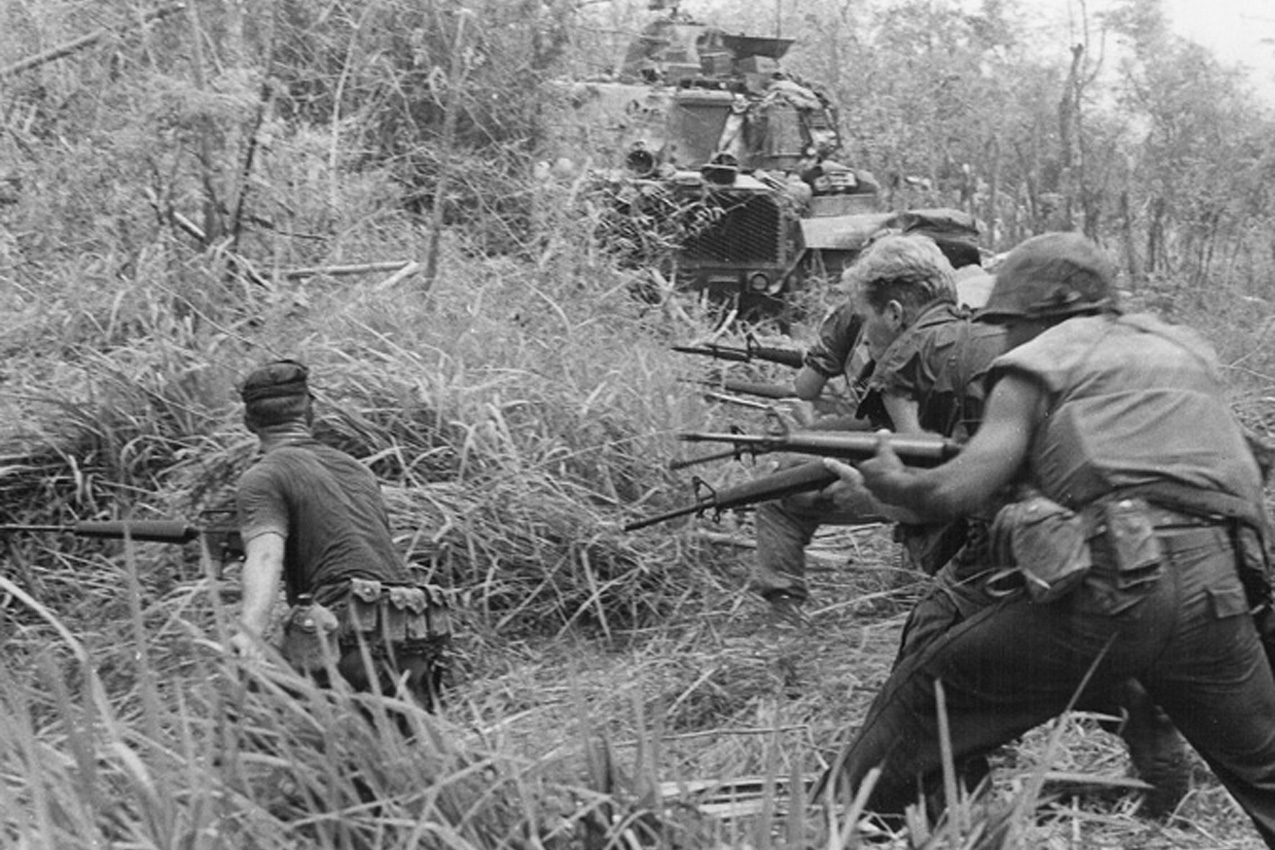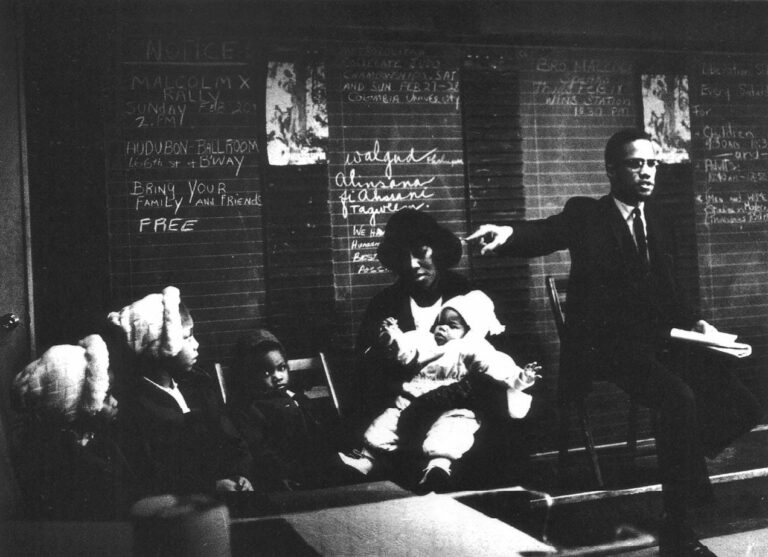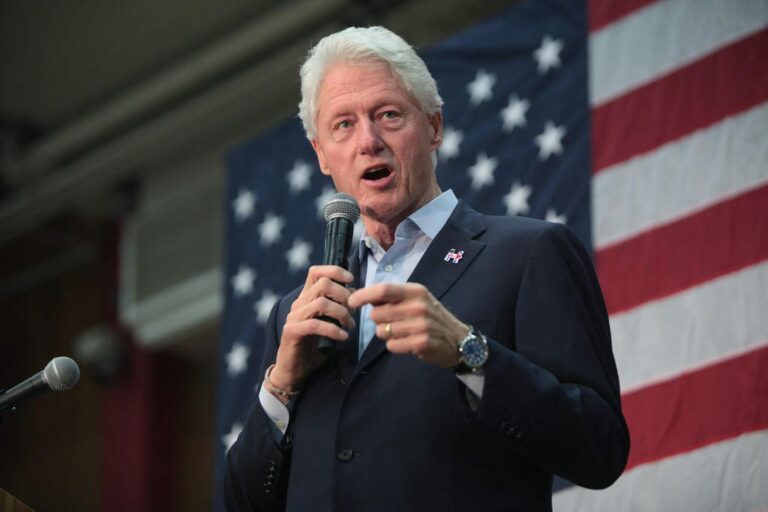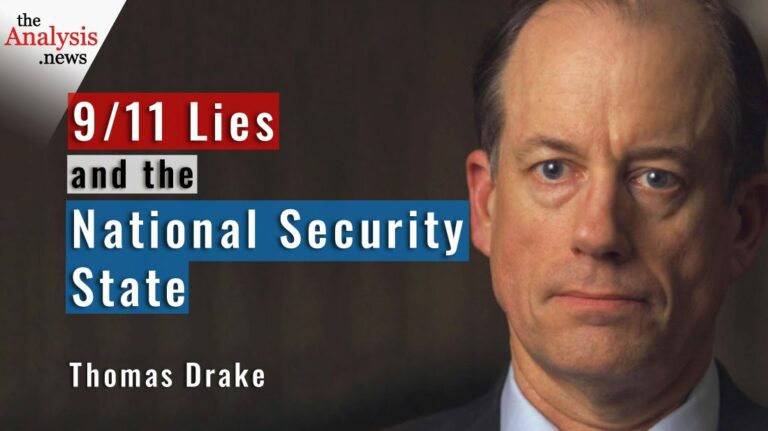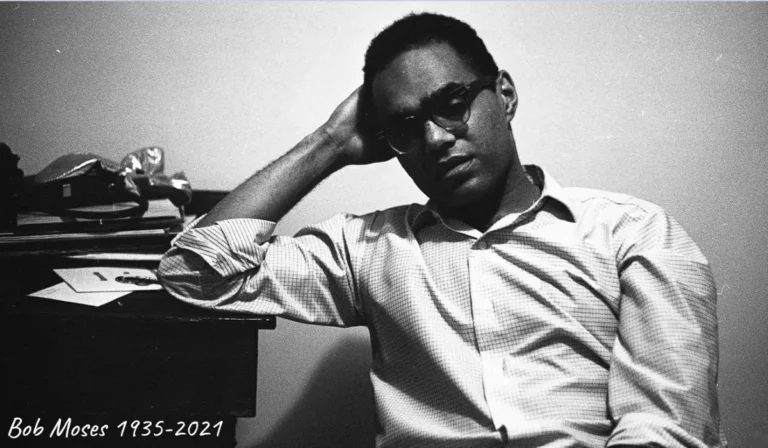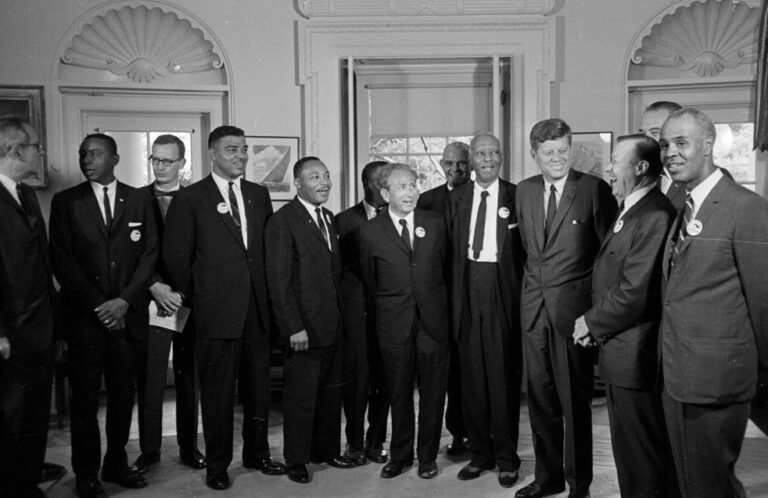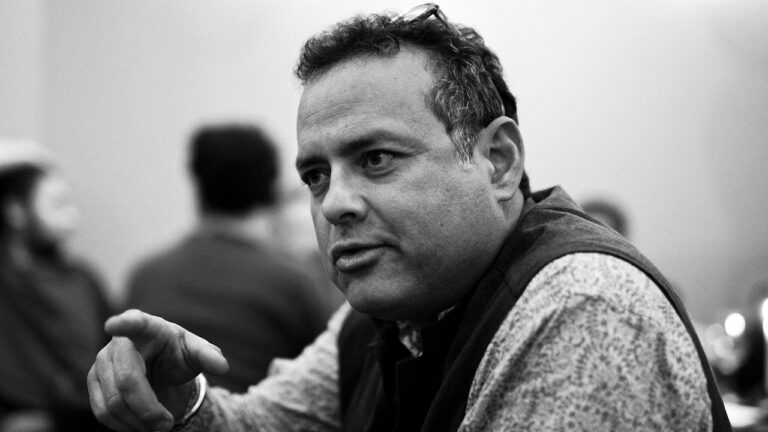I Grew Up Believing in Time Magazine’s Version of America – Gareth Porter on RAI (pt 1/3)
This is an episode of Reality Asserts Itself, produced on March 16, 2014. On Reality Asserts Itself, Mr. Porter tells Paul Jay that by the end of the Vietnam War, he understood the US government and military could do terrible things.
No posts
PAUL JAY, SENIOR EDITOR, TRNN: Welcome to The Real News Network. This is Reality Asserts Itself. I’m Paul Jay in Baltimore.
Our next guest believes that the U.S. and Israeli officials have created a false narrative. It says that Iran has been using their nuclear energy program as a cover for a secret nuclear weapons program. This—according to our guest, this is based off weak or no evidence from suspect sources in order to achieve political strategic objectives that are not being presented to the public.
That next guest who believes all of these things is Gareth Porter, investigative journalist, who now joins us in the studio. Gareth is a historian and investigative journalist. He covers U.S. foreign and military policy. He writes regularly for Inter Press Service. He’s the author of five books, and the latest of which and one of which we are going to talk a lot about in this interview is Manufactured Crisis: The Untold Story of the Iran Nuclear Scare.
Thanks for joining us, Gareth.
GARETH PORTER, INVESTIGATIVE JOURNALIST: Thank you very much, Paul.
JAY: So, as most people know who watch Reality Asserts Itself, we usually start with some personal back story of our guest, and we’re going to do that with Gareth. And then we’re going to dig into the Iranian-American nuclear issues.
So in these personal things, I’m usually trying to get at one thing, and I guess I’m going to ask you directly. Did you grow up believing the official narrative of America and America as the beacon on the hill, the force for democracy, America the good? I usually characterize the narrative as being sometimes we’re forced to do bad things to achieve good ends.
PORTER: Absolutely. When I was a kid, when I was in high school, when I went off to college, I was a Time magazine reader, and I believed what I was reading in Time magazine. So I definitely fall solidly within that sort of American exceptionalist viewpoint about the world.
JAY: You grew up. What did your parents do? What did they believe?
PORTER: My father worked in a lumber yard for many years, until I was in junior high. And then he—.
JAY: This is in the Midwest.
PORTER: In the Midwest, in a small town in Illinois. And then he went back to teach school. He taught school and was a coach before I was born, and he went back to that later on. So he was somebody who had a college education but also was a laborer.
And my mother was at home. She was—she did not have a job.
JAY: And political? Did they follow the news? Did they talk about stuff at home?
PORTER: Not really. My mother was a pacifist. She was a member of the Church of the Brethren, and so she had that influence on her. And she was political in the sense that she tried to understand what was going on. Perhaps uniquely in that small town in northern Illinois, she did have a consciousness about issues that I would eventually become involved in. But it did not—it’s not something that I was consciously influenced by. We didn’t talk about it at home. It was not something that she pushed on me.
And my father didn’t really discuss politics either. He was a Democrat, but he was not highly political, he was not highly partisan, he was not somebody who would talk at the dinner table about politics.
JAY: And how much did you internalize the Cold War narrative, you know, the commies are coming to get us and, you know, just they infiltrated our society and—?
PORTER: I think I would generally believe what Henry Luce had to say through Time magazine until I was in—you know, older, in college, at the end of college and the beginning of graduate school. That, of course, was a key turning point.
JAY: So, I mean, I would—as assessing you as a journalist and a historian, I would say you probably don’t accept any of the official narrative on face value anymore. How do you get from that to here?
PORTER: Well, you start with Vietnam. Nineteen sixty-four was absolutely the crucial turning point in my life, because it was in early 1964—and I was then already interested in international affairs, international politics, and U.S. foreign policy, so I was following what was happening in Vietnam, and I began to see stories drawn from The New York Times. I was at the University of Illinois then, and I wrote a column. And I saw that the secretary of defense, Robert S. McNamara, was saying something to the effect that, well, we may have to intervene with troops, with our own troops in South Vietnam. Well, that didn’t quite strike me as something that made any sense.
JAY: Why?
PORTER: Because—.
JAY: I mean, if you buy a Cold War narrative, why not?
PORTER: Because I had been told that we were only there to support the South Vietnamese. Now the line was suddenly changing, and that sort of red light went off in my head at that point. And from then on I became skeptical about what the United States was doing in Vietnam. And I was opposed to sending troops to Vietnam before we even sent, you know, the combat troops, the openly combat troops to Vietnam.
So perhaps I was psychologically, you know, immersed in my mother’s pacifism. I don’t know. But in any case, it was not consciously held; it was something that would have been much more subtle than that.
But in any case, I was against committing U.S. troops to Vietnam, because I felt that there was an untoward change in strategy in the political line there that was not adequately explained.
JAY: And this then leads to some serious writing and investigative work on your part.
PORTER: Well, it led ultimately to my opposing what the United States was doing, more and more emotionally and more and more determinedly. By the time I was a graduate student at the University of Chicago, when the United States was openly, of course, in Vietnam in a major way in terms of combat troops, I was beginning to see, you know, that the cost of this war to the Vietnamese was so awful that, you know, it needed to be opposed politically.
And by 1967, when I was teaching at Manchester College, where I’d been an undergraduate, I read a book called The Military Half, which was a masterful treatment based on visiting the northern provinces of South Vietnam, where the United States was destroying villages wholesale. And that book made me decide that I would become a Vietnam specialist, because I needed to do something about this war to get the expertise necessary to make myself credible, to essentially challenge the narrative surrounding this war, and the broader picture as well.
JAY: So that leads to a book.
PORTER: That leads to a book in 1975, which was a book about the negotiation of the Paris Peace Agreement. I was the first one to publish a book on the negotiations to end the Vietnam War.
JAY: And so by the time the war’s over, what’s left of the official narrative? I mean, viewers know I usually use this term the religion of Americanism. It sounds like you were brought up in more or less that—with some of the fervor, anyway. Is it all gone by the end of Vietnam, by the end of the war?
PORTER: By the end of the war, I realized that the United States government and the U.S. military was capable of doing terrible things and that that needed to be exposed very strongly. I did not understand at that point that we’re talking about a fundamental system that would repeat this set of crimes again and again.
JAY: ‘Cause at that point it looked—it’s a policy failure of certain administrations.
PORTER: Well, I think that I still had this inherent, perhaps, hope that the American people would not let this happen again, that it was so awful that this could not happen again. And that—during the 1970s and 1980s, I think I was still persuaded that we could hope for a new world in terms of the United States’ positioning in it and no more wars like Vietnam.
So it was not really until Iraq that I began to—you know, or that I decisively shifted to a position that recognized that we have a system here that has to be changed,—
JAY: The first Iraq War.
PORTER: —a war system, a system that really is dedicated to permanent war, that has no intention of ending the continued wars of various kinds by the United States.
But a crucial factor in this was my writing the second book, major book about Vietnam, which was called Perils of Dominance: Imbalance of Power and the Road to War in Vietnam. And it was that book, doing the research for that book that made me understand, for the first time fully, that it was not about the president being wrongheaded or, you know, warlike, whether it was Kennedy or Johnson; it was the system that surrounded the presidency, it was the national security state itself that pressed for war in Vietnam and that made that war inevitable. And so it was that insight that I got from doing the book that informed my understanding of what was going on in Iraq. And it was the combination of those two things that really transformed my consciousness.
JAY: Was it a cumulative effect? Or do you remember a specific piece of research and thing where the kind of coin dropped for you?
PORTER: Not one single thing, but there was a whole series of revelations that I had when I did the research on the Vietnam War that involved things like Robert S. McNamara deceiving L. B. J. about the Gulf of Tonkin. On that day when the Gulf of Tonkin incident occurred, or at least was said to have occurred—and, in fact, we know now that there was no attack on U.S. ships on that day—Robert S. McNamara was told by noon, or roughly early afternoon on that day, that there’s doubt about what had happened. They didn’t know if there had been an attack on U.S. ships in the Gulf of Tonkin. He never told L. B. J. that day that he knew that they were not sure that there had been an attack on U.S. ships. L. B. J. made the decision to order the bombing of North Vietnam without being told the truth that Robert S. McNamara knew. And from that, I understood that McNamara, leading the national security state at that point on Vietnam policy, was trying to essentially make sure that L. B. J. would do what they had been trying to get him to do, and which they would continue to try to get him to do for the next several months, which he would resist.
So that was really a key insight into the nature of this system. And there were other things as well, but it was that set of episodes surrounding the beginning of the war, the origins of the war.
JAY: And so what conclusions do you start to reach when it drops for you this is systemic, this is about a whole structure?
PORTER: Well, I think the key thing is the realization that these bureaucracies—the Pentagon, the CIA, the National Security Council—this setup, those conjuries of national security bureaucracies, inevitably make decisions on policy which are in their own bureaucratic interests, that make sure that they are well funded, that their power increases rather than decreasing, that their prestige increases rather than remaining the same or falling off. And how do they do that? They do that by making sure that they have the capability, in the case of the military or the CIA, to become more deeply involved in foreign conflicts. And once in a while, at least, they need to exercise that power in a violent way. So I think it’s—that is the nature of the system. It is inevitable. It has nothing to do with individuals. It’s a system that runs automatically as time goes by, until the American people wise up or get angry enough to stop it, or until we run out of funds.
JAY: Does it not also start to get more complicated? And what I mean by that is are there not times where you have a president who wants the war and the professionals don’t? And we’re going to talk more about that when we dig into your book and talk about Iran, but to some extent that was true about Iraq, the Iraq War, with Bush-Cheney. A lot of the professionals didn’t want that war, and it was driven, to some extent, more by the White House.
PORTER: It was driven by the White House—more specifically, of course, by the vice president’s office and his allies, neoconservative allies elsewhere in the government.
But, you know, in that case, in the case of Iraq, you had the Army clearly against it, no question about it; the Air Force clearly for it; and the other services willing to go along, not having a particular dog in the fight one way or another, but ready to take advantage of it once the decision was made.
JAY: And then, of course, when you’re talking about the national security state, you have to talk about the military-industrial complex, which means all the big arms manufacturers, and they weigh in on this too. And they all have their political representatives and their horses in the race. So it’s a complex process.
PORTER: Right.
JAY: And certainly most of them would have wanted that war.
PORTER: And those two sets of interests, the economic interests and the bureaucratic interests, obviously reinforce one another, no question about it.
JAY: Okay. So back to your personal story. So the coin drops for you, and to a large extent you kind of dedicate your life now to this kind of investigative historical work of kind of exposing the official narrative and what is the reality. And at what point—obviously, the Iraq War was a major issue for you. But at what point do you decide that Iran and what’s going on in terms of the nuclear standoff and so on becomes something that to a large extent has been almost all your work for several years?
PORTER: Well, the turning point for me to really dig in on Iran as an investigative journalist was having a German source tell me—it was in Washington, D.C.—tell me that he could confirm that it was indeed what he called the resistance organization, the Iranian resistance organization, that had given the crucial documents that had been so important in making the case that Iran was—had a covert nuclear weapons program. That resistance organization had given those documents to Western intelligence. That was confirmation of something that there had been an indication of previously, but I had not been ready to really write anything about it.
JAY: And this is an organization that had been conducting terrorist attacks, according to the Iranians. I think most people consider it terrorist attacks—you blow things up, you shoot people, it’s terrorist attacks on Iran. And they begin—they’re kind of—you realize, are the source of this whole narrative that starts to emerge.
PORTER: Exactly. And, of course, that shed light on the credibility of the documents themselves, because, first of all, the MEK is of course a completely self-interested organization. Mojahedin-e-Khalq is known to lie whenever it serves their purposes, which is most of the time. And they also were an instrument of policy for Israel. I mean, it’s very well documented that the Mojahedin-e-Khalq had served as a way to essentially launder intelligence the Israelis wanted to put out publicly but did not want attributed to themselves.
JAY: So we’re going to dig into that as we unfold the story in the next segment. But when do you become aware of a document, the Project for the New American Century, which is the neocons’ vision of asserting American—projecting American power across the globe? Essentially, my interpretation of the document is, let’s be aware, self-aware, that we are now a single superpower world, let’s shape this world as we think it should be, and don’t be afraid to use force to do it. And they put bullseyes on Iraq, Syria, and Iran.
PORTER: Well, it was in that period of 2004, 2005—I don’t remember exactly, but it’s certainly in that period immediately after U.S. invasion of Iraq that that was being widely discussed.
JAY: The document’s what? Nineteen ninety-nine, I think.
PORTER: Nineteen ninety-nine [crosstalk]
JAY: Towards the end of the Clinton administration.
PORTER: Yeah. Ninety-nine. Yeah.
JAY: So this narrative about Iran plays right into those aims.
PORTER: Well, absolutely. There’s no doubt that the same people who promoted, you know, the idea of the American Century, which meant the United States should assert its power over the entire Middle East [crosstalk]
JAY: Essentially through regime change.
PORTER: Through regime change, beginning with Iraq, but not limited to it. Those were the same people who promoted the idea that Iran had to be stopped, the nuclear program had to be stopped, but the regime had to be changed in Iran.
JAY: It was about regime change.
PORTER: It was about regime change. That’s what they wanted.
JAY: And I think it was pretty clear that the path was Iraq is the first step towards Iran.
PORTER: Exactly. And Iran was the culmination, the culminating point of this whole strategy of regime change in the Middle East.
So of course this reflected the interests of Israel. This was an Israeli objective. The neoconservatives were completely in line with that.
JAY: Oh, it was their own objective too.
PORTER: It was their own objective as well. And so we have here a sort of a system of thinking that involved the use of force by the United States for regime change that ultimately would result in eliminating the only significant rivalry, in terms of power, to Israel in the region.
JAY: And to the Americans. I mean, you have a—Iran’s a big country with a big army outside the American sphere. So to have—.
PORTER: That’s right.
JAY: You know, I mean, the Americans’ professional authority, I mean, the security state and the military policy complex have never gotten over that one of their main pillars of power in the region, the Shah of Iran, was overthrown. And I don’t think they’ve ever wanted to swallow that. It’s always something they’ve wanted to undo.
PORTER: Absolutely. This is a key point about the nature of U.S. policy toward Iran, that the United States has never given up the notion that we could go back to having the equivalent of the Shah as an ally and then things would be just rosy for U.S. power.
JAY: Right. So as they have a weapons of mass destruction narrative to overthrow Saddam Hussein, they have a somewhat similar narrative needs to be constructed on the path to war with Iran. And that’s the subject of the next part of our interview, because that’s what your book is all about.
So please join us for the continuation of our series of interviews with Gareth Porter on Reality Asserts Itself with Gareth Porter on The Real News Network.
“Gareth Porter is an American historian, investigative journalist, author and policy analyst specializing in U.S. national security issues. He was an anti-war activist during the Vietnam War and has written about the potential for peaceful conflict resolution in Southeast Asia and the Middle East.”
